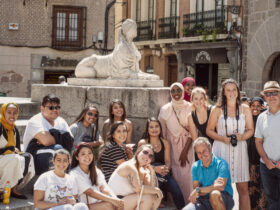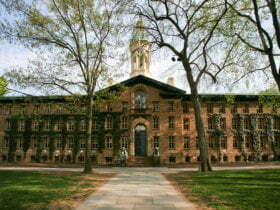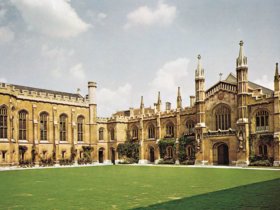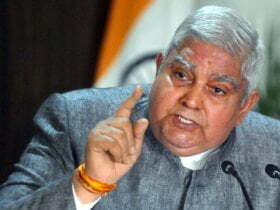On the closing day of May, 53 sanitation employees have been unceremoniously dismissed from their jobs at the three campuses of Ambedkar University in Delhi. Some of those workers had been employed at the AUD for almost a decade; all were given notice of mere hours. The employees were hired through Sulabh International, a non-earnings enterprise the United Nations has feted for its work on sanitation. The AUD ostensibly let them pass in favor of a less expensive contractor, Bhagwati International, a private firm.
In early June, the sanitation employees protested at the university’s Kashmere Gate campus. Students from enterprises such as the Students Federation of India, the student wing of the Communist Party of India (Marxist), the Progressive and Democratic Students Community, and the Dalit and Bahujan Adivasi Collective—pupil organizations of AUD—supported the protest. The Krantikari Yuva Sangathan, an adolescent business enterprise that works for the rights of marginalized sections of society, and the Safai Karamchari Union, a union of sanitation employees, also joined the protests.
The sanitation people demanded that they are reinstated, given permanent jobs, employed immediately using the AUD, and accused the college and its professors of caste discrimination. They, in particular, singled out Lokesh Garg, the university’s deputy registrar, for what the people described as “blatant casteism.” The protests endured until 6 June to no avail, and six days later, they met the Aam Aadmi Party leader Gopal Rai, the labor minister of Delhi. After negotiations between the management and the people—with help from the student organizations and SKU—on thirteen June, the AUD eventually relented and reinstated all the employees who allowed the move. The settlement with Bhagwati International was also canceled.
While the employees’ contracts have now been renewed, the issues they raised at some point in their protests continue to be unaddressed. Anshu Singh, the spokesperson for AUD, instructed me that “all the team of workers has been working on an outsourcing basis” by using Broadcast Engineering Consultant India Limited. This central authority business enterprise provides consultancy offerings. Singh did not have any statistics on whether or not the workers were rehired on an everlasting or a contractual basis and what benefits they would obtain. The workers had additionally demanded the constitution of a committee comprising professors, students, and two people to check the expenses of caste discrimination towards Garg independently.
When I asked her if the university might take any movement on the court cases towards Garg, Singh informed me that “no formal complaint changed into ever received inside the University,” so there was no doubt of reprimanding him. Garg has, however, been divested of his fee of the estate’s division—an administrative unit of the college that manages services inside the campus and supervises all the people. Sunny, a 35-12 months-vintage who cares about the sanitation employees, instructed me that “there are rumors he will be transferred to some other campus in the identical college.”
The protests commenced on three June, while the sanitation workers and participants of the scholar businesses accrued on the AUD’s Kashmere Gate campus, out of doors the workplace of the vice-chancellor, Anu Singh Lather. Three days earlier, the workforce had all arrived in the morning, handiest to be advised that it might be their final day at paintings. Anita, one of the workers, was shocked by how surprising the termination changed and how the AUD gave them no time to search for different jobs. “How are we imagined to pay payments?” she stated. The college students and workers sat outdoors in the office. They raised slogans, “Hum Apna Adhikari Maangte, Hum Kisi Se Bheekh Nahi Maangte”—We are soliciting for our rights; we aren’t begging.
The people’s number one demand changed because their employees must be secure and dealt with with dignity. Sunny’s consistent chorus at the protest became, “Jo safari ka kaam hai wo Roz ka hota hai. Agar ye came permanent hai, to activity everlasting kyu Nahi hai?”—The work of cleansing is daily. If the paintings are everlasting, why isn’t the task permanent too? Chaitanya, a doctoral scholar and a member of the PDSC, also raised the difficulty that the AUD’s decision to supply permanent status to sanitation workers no longer “was casteist in itself.”













